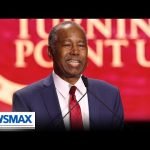America is rightly asking a blunt question this week: is the Federal Communications Commission starting to police what we can say and who can say it? The answer depends on whether you trust the mainstream media to play by any honest set of rules, because what unfolded after the tragic killing of Charlie Kirk shows the FCC’s chair publicly threatening networks that dared to let a late-night host mislead the public on a national story.
The immediate flashpoint was Jimmy Kimmel’s monologue, which linked the alleged shooter to a political movement, and the swift decision by ABC and some affiliates to pull his show off the air indefinitely. Those corporate moves came only after the FCC chair signaled that broadcasters could face regulatory consequences if they did not act — a move that, to many Americans, looked like the federal government breathing down the necks of private media.
Conservatives should be clear-eyed about media malpractice: networks have too often trafficked in one-sided narratives and half-truths, and when they mislead millions it matters. That said, using the coercive power of regulators as a cudgel to force apologies or suspensions is dangerous unless applied with ironclad, evenhanded standards — and the White House and FCC messaging around the episode made it plain they were happy to reward corporate discipline when it punished the right people.
Voices across the spectrum reacted — some Democrats rightly called the FCC’s stance chilling, while even Republicans like Ted Cruz warned that government threats to remove licenses over political speech are “dangerous as hell.” This is the paradox conservatives must confront: we want accountability from powerful media empires, but we also know the worst weaponization of federal power comes from politics masquerading as principle.
Put into legal context, the FCC does have statutory authority over broadcast licenses and a mandate to ensure stations operate in the public interest, but precedent and the First Amendment place serious limits on any agency’s ability to pick winners and losers in political discourse. FCC officials have publicly said the First Amendment protects almost all speech, yet actions that look like jawboning networks into compliance leave Americans wondering whether that rhetoric matches reality.
Patriotic Americans should demand both a free press and a fair press. That means pushing networks to stop their ideological echo chambers and to report responsibly, while insisting Congress and the courts put bright-line checks on any regulatory overreach that would turn the FCC into a political enforcement arm. If liberals celebrate government pressure one day and condemn it the next, they expose the naked truth: this isn’t about principles, it’s about power — and conservatives must fight to keep government power from becoming the final arbiter of speech.
So is the FCC “coming after” free speech? Right now it looks more like a dangerous flirtation with that line than a full-scale assault, and that alone should alarm every American who cares about liberty. We should applaud efforts to hold media accountable, but we must be louder still in opposing any precedent that allows regulators to weaponize license threats against speech they or their political allies dislike.




